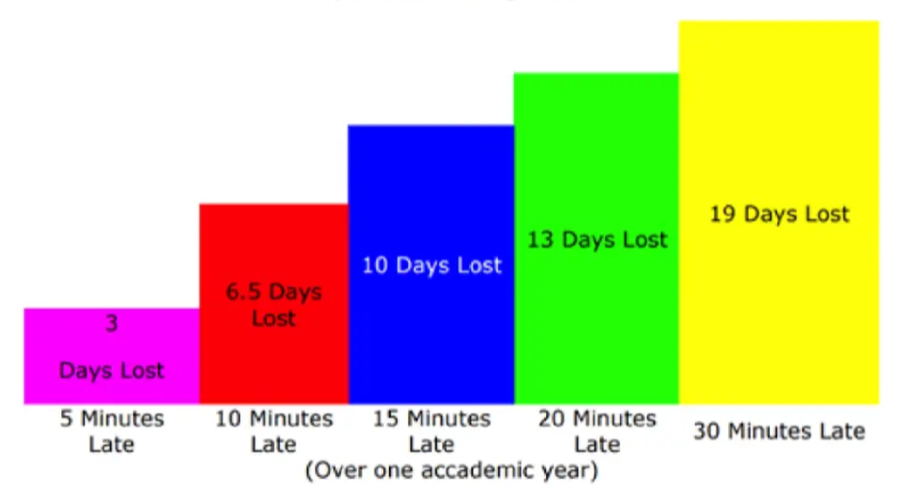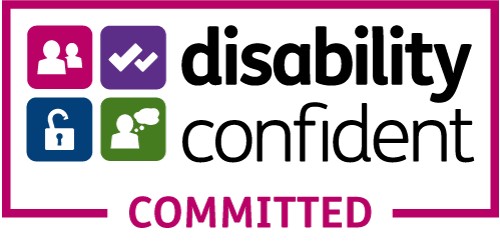Attendance
At Knowleswood Primary, we believe that excellent attendance and punctuality are vital for every child’s academic success and personal development. Every school day matters—even short absences disrupt learning and progress.
Parents are legally responsible for ensuring their child attends school daily. Unauthorised absences may lead to legal action.
To safeguard all pupils, our Governing Body ensures a robust attendance system is in place, accounting for every child each day school is open.
We work closely with families to promote regular attendance, offering support where needed. Our school is a happy and caring environment, where children thrive best when they feel safe, supported, and engaged.


Reporting an absence
Contact school as soon as possible on the first day of absence. If no notification of absence is received, the school office will contact you to ascertain the reason.
Where possible, let school know in advance of any planned absences, for example, hospital appointments.
Where possible, make medical or dental appointments outside of school hours.
To report your child’s absence, please phone the school.
- telephoning the school office on 01274 778177
- sending a text message to the school
- emailing attendance@knowleswoodacademy.co.uk
Holidays
Pupil Leave of Absence requests
We ask that parents submit term time leave of absence requests online using the new Bradford Council form, which came into effect from November 2025. The form can be accessed via this link: https://www.bradford.gov.uk/LOAForm
Once you have submitted your form via the link above, you will receive an acknowledgement. A copy of your request will also be sent to us in school. Your request will then be considered in accordance with the local authority and school policies for leave of absence during term time and you will receive correspondence regarding the decision that has been made in your case.
We would remind parents that holidays in term time will not be authorised (other than in exceptional circumstances) and you may be subject to a fixed penalty notice being issued to you by the Local Authority if your child is absent for 5 or more days for this reason.
For parents and carers wishing to submit a leave of absence request for an appointment i.e. doctors or dentists (anything typically one day or less), we would ask that you submit those requests by emailing attendanceteam@knowleswoodacademy.co.uk directly. A member of the team will then be in touch to discuss this with you.
We would remind parents and carers that you should attempt to make appointments outside of the school day wherever possible, so that your child does not lose out on time spent learning. Please also ensure that you child attends school before and after appointments. Please do not absent children for the whole day where an appointment lasts for only an hour or two.
Should I keep my child off school?
Authorised absences
- Genuine illness of the pupil
- Hospital or dental appointment for the pupil
- Death of a near relative
- Religious observance (faith of the parents or carers )
Unauthorised absences
- A shopping trip
- A birthday treat
- Oversleeping due to a late night
- Looking after other children
- Letting the gas man in, etc.
- The parent or carer is unwell
Is my child too ill to come to school?
The NHS website below contains useful information to identify and support illnesses for children attending school.
Is my child too ill for school? - NHS (click here)
My child requires medication in school?
School can administer medication that has been prescribed by a doctor (with a pharmacy label on) that requires administering 4 times a day or more or that should be taken with food. If the medication states 3 times a day, then this should be given at home (before school, after school and before bed).
School can also administer Calpol/Paracetamol if it is provided to us in an unopened bottle, sealed sachet or fast melt (for up to 3 days maximum). We cannot accept open bottles of medication that is not prescribed by a doctor.
For all medication in school, a medication form must be completed by the parent/carer and both the medicine, and the form must be handed to the School Office in the morning and collected from the School Office at the end of the day. Please contact the school office for more information.
Punctuality and attendance
School starts at 8:30am prompt!
The law requires the register to be taken twice a day. We do this at 08:50 at the start of the morning session and 13:00 at the start of the afternoon session.
We close registers at 8:55 in the morning, and after 09:10 children will be marked as unauthorised absence if we have not been informed of an explanation for their absence.
When a child arrives late to school it can be very disruptive to your child, the teacher and other children in the class. If your child arrives late to school they will be marked as late on the register. If your child arrives very late, the child will be marked as an "Unauthorised Late" - This is the same as an Unauthorised Absence.
The register is marked using the DfE Attendance and Absence Codes. Guidance on applying the Education (Pupil Registration) Regulations 2006 can be found in ‘Advice on School Attendance’ published 2012 by the DfE.
We ask parents/carers to accompany late children to the office where a reason for lateness and the number of minutes late, will be recorded on their child’s attendance record.
Learning starts straight away when children enter the classroom. We also know from talking to children that they do not like coming into the classroom late.
Being late by just a few minutes adds up.

If a child has an appointment
We ask that a child’s routine medical and other appointments are made out of school time, where possible.
We understand that this is not always possible though and we ask that we are notified in advance. This can be done by telephone, email or a note provided from home or appointment letter/ card to confirm the appointment.
Where possible, the child should attend School before the appointment and return to lessons afterwards.
Leave of absence (including term time holiday requests)
Amendments came into force in September 2013 and the Education (Pupil Registration) (England) Regulations 2006 now state that Headteachers may not grant any leave of absence during term time unless there are exceptional circumstances.
There is a common misconception that any child is allowed to take 10 days’ holiday per year. This is not true and the government strongly urges parents or carers to avoid taking a child out of school for family holidays as this will disrupt their education.
Please note that absence will not be authorised for reasons such as shopping for uniform, birthdays, day trips, weekends away etc.
Only exceptional circumstances warrant an authorised leave of absence.
Requests should be made well in advance and in writing by parents or carers. Please pick up a request form from the school when convenient.
Requests for absence for reasons such as compassionate leave, special family events, sporting or musical competitions, etc. should be made in the same way.
All requests are considered individually, taking into account the circumstances of the request. Other factors will be taken into account, such as:
- the time of year the child will be absent
- the attendance record of the child
- the number of previous requests for leave of absence
We will notify parents of our decision either by telephone or in writing.
Where a parental request has been refused, and parents continue to take their child out of school, this absence will be recorded as unauthorised.
Parents can be fined £80 per child per parent - rising to £160 for a second offence - increasing to potential prosection and a £2,500 fine for a third offence. This is the same for all UK schools.
If you want to know more about how Bradford Council issues fixed penalty notices, click below:
Warning and penalty notices | Bradford Council (click here)
We encourage all medical and dental appointments to be made outside of school hours. We may also require medical evidence of absence due to illness.
Calls and home visits to parents/carers
We take our safeguarding responsibility extremely seriously and calls and home visits are made daily to the contact numbers of a child’s parents or carers if the child is absent, and we have received no reason for absence.
We make calls and home visits daily, even where a child has been absent due to illness on previous days. We cannot assume that a child is still ill if we have not been notified and we would not wish to put a child at risk by failing to contact their parents or carers.
Persistent absence
The parents or carers of a child have a legal duty to make sure that child attends school regularly. We can make a referral to the local authority where parents or carers are failing this legal duty.
Persistent Absence is a serious problem for children, as much of the work children miss when they are off school is never made up, leaving them at a considerable disadvantage.
A child will be defined as a ‘Persistent Absentee’ if they miss 10% or more of school.
The local authority has the power to enforce school attendance where this becomes problematic, including the power to prosecute parents/carers who fail to ensure a child’s regular attendance at school.
It is important for parents and carers to note that the government has also strengthened schools’ ability to respond by increasing Fixed Penalty Notices to £80 if paid within 21 days and £160 if paid between 21 and 28 days. These are an alternative to prosecution of parents or carers for failing to ensure a child attends school regularly. Failure to pay can result in prosecution in the Magistrates Court.
Why does persistent absence matter?
Missing school has a huge impact on how well a pupil gets on at school. The more school a child misses, the harder it is for them to get into a routine of attending regularly and catch up on the work they have missed.
Research shows that a year 11 pupil who has missed 17 days during the school year will get one grade less than they would have achieved had they attended regularly. Research also shows that persistently absent children are less likely to do well at school, are more likely to experience crime, either as a victim or perpetrator, struggle financially, and even suffer with poor health in later life.
A few days of absence now could have a huge impact on a child's future opportunities.
We email parents every week of their child's attendance so you can see what impact absences have through the year.
Attendance challenge meetings
Where a child’s attendance continues to be a concern we may make a referral to the Local Authorities Education Safeguarding Team. This is a positive measure to support a child’s parents or carers to fulfil their legal responsibility to ensure the regular attendance of their child. A meeting will be held and the parents or carers will be invited to attend.
An action plan will be drawn up at this meeting and the parents or carers will be sent a letter explaining the outcome of the meeting and possible consequences.
Following a monitoring period, a review will be held and if insufficient improvement is made, we as a school will make a decision on the next steps. This could include the issue of a Fixed Penalty Notice, referral to the Magistrates Court for prosecution or, in some cases, the monitoring period may be extended for a further period of time.
How are we doing?
Good attendance is everyone's business -and we all have a role to play in ensuring children attend every day. Parents, teachers, school leaders and our governors need to know the part they plan in achieving this.
Attendance
| Autumn 1 (25/26) | UK National Average | Bradford School Average |
|---|---|---|
| 93% | 94.5% | 92% |
| 92.4% | 94.5 |





